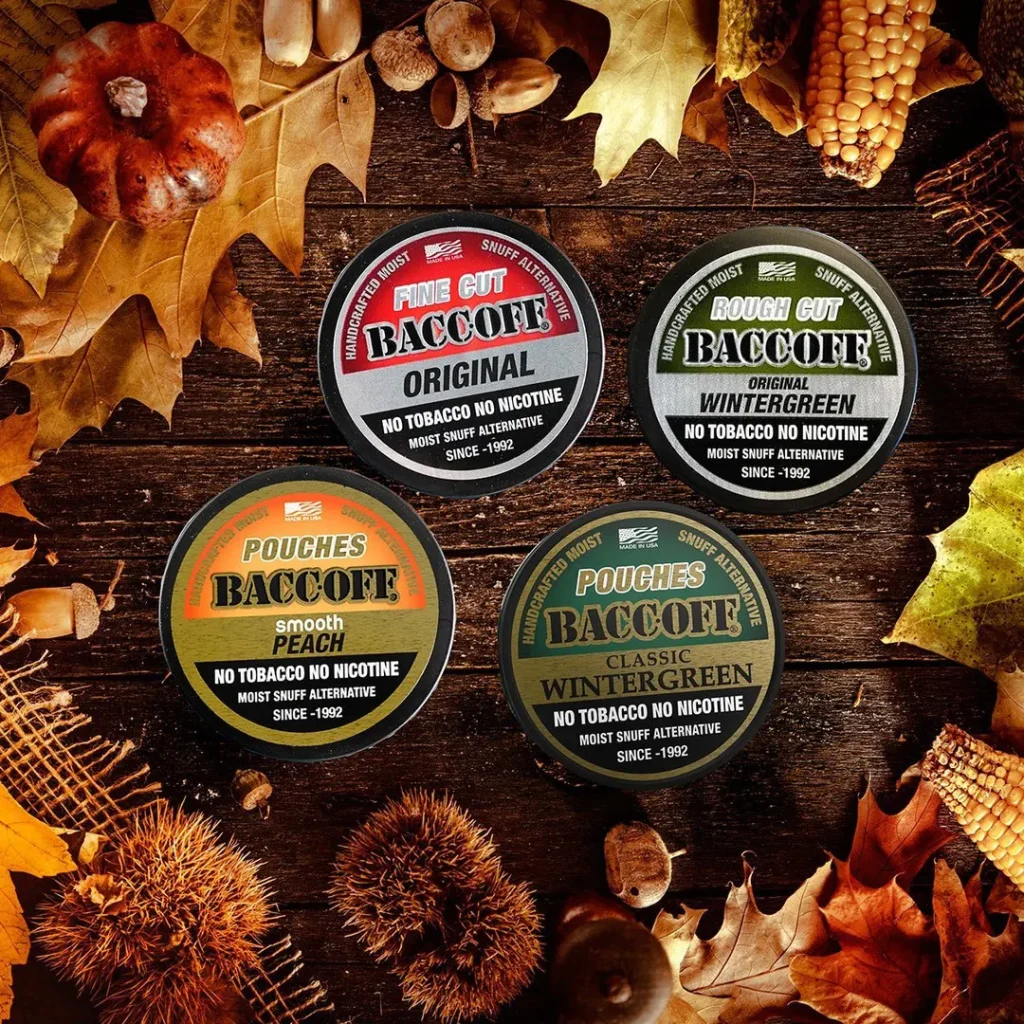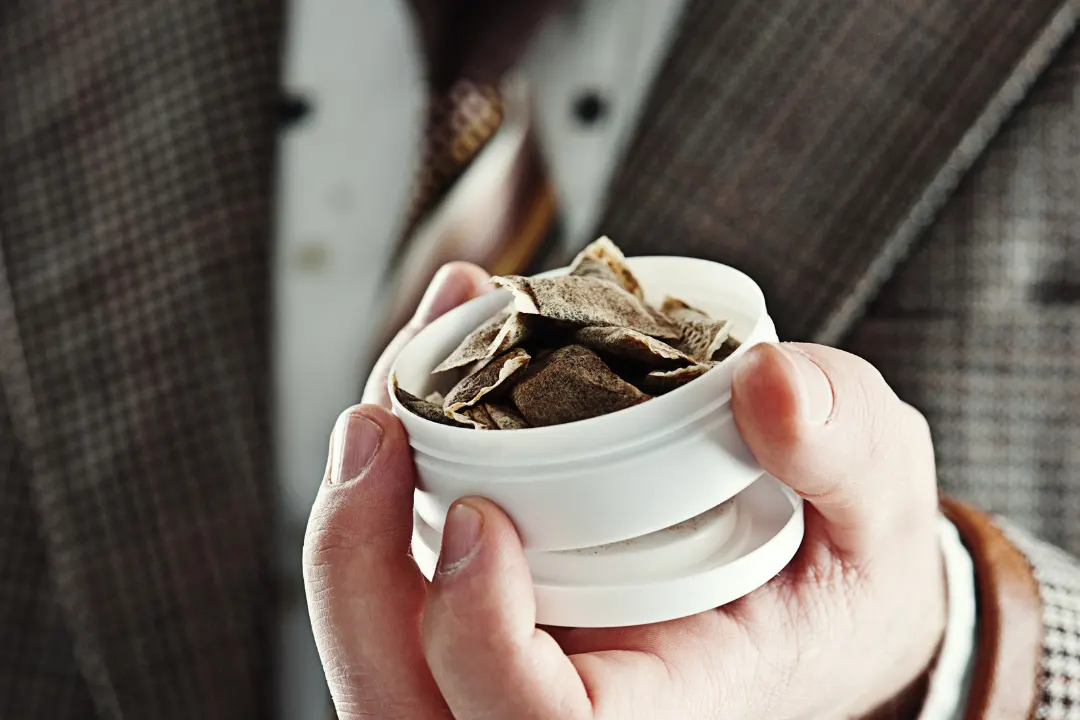Dipping tobacco has serious health risks, including cancer, heart disease, and even tooth loss. This article will explore five great alternatives to dipping tobacco to help you quit the habit.
Dipping tobacco and smokeless tobacco are major health issues in the United States. According to experts, around 2 in 100 American adults currently use smokeless tobacco products. This usage occurs despite what we know about dipping tobacco’s health risks. If you’re looking to quit, and you want to know some alternatives to dipping tobacco, you’ve come to the right place.
You May Also Like:
The CBD Business is BOOMING. Here’s Why.
Beyond the Hype: How CBD Can Help Seniors Enjoy a Better Quality of Life
Read on as we discuss 5 great alternatives to dipping tobacco.
Alternatives to dipping tobacco – background and health risks
Smokeless tobacco, a category that includes dipping tobacco, refers to tobacco products that are not smoked or burned. American Indians were the first to use tobacco products. The product spread quickly with the arrival of Europeans to the New World. The market for chewing and dipping tobacco peaked in 1890, although there was a resurgence in the U.S. in the 1960s and 1970s.
Today, we know there is a need for alternatives to dipping tobacco: smokeless tobacco products are often just as harmful and addictive as traditional cigarettes. Like cigarettes, dipping tobacco contains the addictive substance nicotine; in fact, research shows that people who use smokeless tobacco consume as much or more nicotine compared to people who use smoke tobacco. Additionally, using smokeless and dipping tobacco increases your risk of throat, mouth, and pancreatic cancer. You’re also at greater risk of heart disease and dental issues like tooth loss.
Alternatives to dipping tobacco – overview
Smokefree.gov offers some key strategies for quitting dipping tobacco. For instance, you can pick a date to stop using, preferably a date that is low-stress and at least two weeks in the future. You can also research withdrawal symptoms ahead of time, so you can understand that when these feelings hit, they’re only temporary. Exploring treatments, such as Nicotine Replacement Therapy (NRT) and medications, is also an important option, though you should always consult your doctor before starting a treatment regimen.
With this background out of the way, let’s discuss 5 great alternatives to dipping tobacco.
Quitting cold turkey
It may not be comfortable, but quitting cold turkey is one of the most effective alternatives to dipping tobacco. There are a few strategies to make quitting easier. These include setting a quit date, contacting a medical professional, and finding a support group.
The biggest downsides, and why this can be one of the most uncomfortable alternatives to dipping tobacco, are, of course, the withdrawal symptoms. Withdrawal symptoms to look out for include feeling down or sad, feeling irritable and jumpy, having trouble concentrating, and feeling hungrier, among others. Certain things may also trigger cravings for dipping, so you should have a plan in place to address these urges.

Lower-nicotine products
If the idea of quitting cold turkey is intimidating, using a lower-nicotine snuff or dipping tobacco product could be a good intermediate step.
There is some research suggesting that nicotine levels could have a significant impact on addiction potential, making a lower-nicotine alternative desirable. In addition, a study showed that switching to a lower-nicotine smokeless tobacco product significantly reduced the amount and duration of dips among users. In short, there’s some evidence to suggest that lower-nicotine smokeless tobacco products could be beneficial alternatives to dipping tobacco for people who aren’t yet willing to quit dipping entirely.
The obvious downside to this method is that switching to a lower-nicotine product, though an improvement, still isn’t quitting. Additionally, there is often a wide disparity in how much nicotine and toxic carcinogens are in different products. Thus, this option should not be considered a final step.
Chewing on other things
If dipping tobacco users are missing the feeling of chewing on something while they’re trying to quit, one of the alternatives to dipping tobacco could be to chew on something else instead. Suggestions for this include sugarless gum and candy. Raw carrots, nuts, or sunflower seeds will also work.


Nicotine Replacement Therapy
For an effective way to quit, you might consider nicotine replacement therapy (NRT).
NRT refers to a variety of medicines, patches, pills, and other products that are designed to help you quit tobacco. Studies have suggested that NRT treatments could nearly double a smoker’s odds of quitting. That said, there is less evidence for the efficacy of NRT treatments as alternatives to dipping tobacco and other smokeless products.
While these products lack many of the harmful chemicals of tobacco products, NRT options still contain small amounts of nicotine. Additionally, since this is a medical treatment, you should talk with your doctor before starting NRT.


Specialized products
If you’re looking for an effective method to support your quitting, specialized products could help. One product that stands out from the rest is BaccOff.
Founded by former dipper Russell Ralston in 1992, BaccOff was created to help him, and other dipping tobacco users, to quit this harmful habit. BaccOff does this by being one of the most realistic moist snuff and loose cut alternatives to dipping tobacco available. This means you can satisfy your need to dip without any nicotine or tobacco. Not only that, but BaccOff pouches and loose cut products have great flavors like coffee and mint.
Overall, BaccOff is dedicated to making it easier for dippers to quit. As Russell Ralston put it: “I want to see people enjoy life and enjoy dipping without risking their health or the role they play in their families, jobs, and communities.”


Alternatives to dipping tobacco – final verdict
There’s no question that quitting dipping is difficult. However, there are still many alternatives to dipping tobacco to help you. After reading this article, you’re hopefully more informed about what those options are. Good luck!
References
U.S. Department of Veterans Affairs: Smokeless Tobacco: A Veteran’s Guide for Quitting (PDF)
Familydoctor.org: Smokeless Tobacco: Tips on how to stop
Mayo Clinic: Quitting smoking: 10 ways to resist tobacco cravings
Important Note: The information contained in this article is for general informational purposes only, and should not be construed as health or medical advice, nor is it intended to diagnose, prevent, treat, or cure any disease or health condition. Before embarking on any diet, fitness regimen, or program of nutritional supplementation, it is advisable to consult your healthcare professional in order to determine its safety and probable efficacy in terms of your individual state of health.
Regarding Nutritional Supplements Or Other Non-Prescription Health Products: If any nutritional supplements or other non-prescription health products are mentioned in the foregoing article, any claims or statements made about them have not been evaluated by the U.S. Food and Drug Administration, and such nutritional supplements or other health products are not intended to diagnose, treat, cure, or prevent any disease.
Table of Contents


